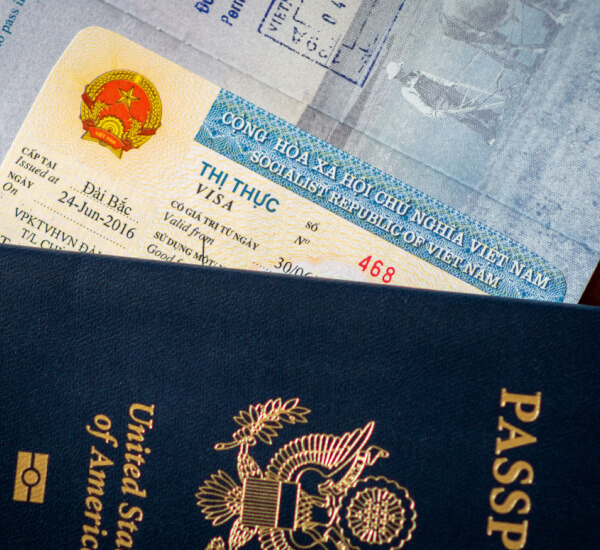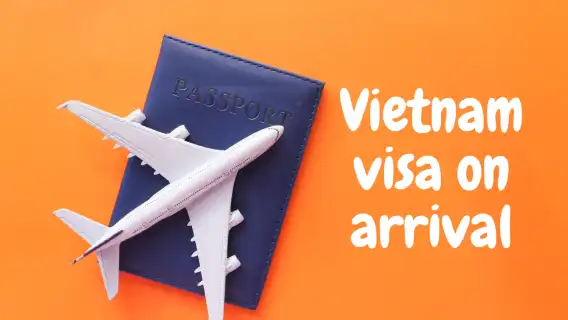
Vietnam Visa Fees A Comprehensive Guide
Vietnam, with its stunning landscapes, rich culture, and bustling cities, is a popular destination for tourists and business travelers alike. However, before planning your trip to this beautiful country, it is important to understand the visa requirements and associated fees. The type and cost of the visa will vary depending on your nationality and the purpose of your visit.
In this comprehensive guide, we will discuss the different types of Vietnam visas, associated costs, and methods of payment. We will also provide tips for saving money on visa fees and answer some common questions about Vietnam visa fees. So, let’s dive in and explore everything you need to know about Vietnam visa fees.
Understanding the Different Types of Vietnam Visa Fees
Before we dive into the details of Vietnam visa fees, let’s first understand the different types of visas available for entry into Vietnam. Depending on the purpose of your visit, you may require a tourist visa, business visa, work visa, study visa, or other types of visas. Let’s take a closer look at each one:
Tourist Visa (Single Entry)
As the name suggests, a single-entry tourist visa allows you to enter Vietnam once and stay for a maximum of 30 days. This visa is ideal for those who are planning a short vacation in Vietnam. It can be obtained either through the traditional visa-on-arrival method or by applying for an e-visa online.
Validity:
This visa is valid for 30 days from the date of entry.
Cost:
The cost for a single-entry tourist visa is $25 for 30 days, excluding processing fees. This fee remains the same whether you choose the visa-on-arrival or e-visa option.
Tourist Visa (Multiple Entry)
If you plan to travel to Vietnam multiple times within a 90-day period, then a multiple-entry tourist visa is the most suitable option. It allows you to enter and exit the country multiple times within 90 days from the date of issuance.
Validity:
This visa is valid for 90 days from the date of issuance.
Cost:
The cost for a multiple-entry tourist visa is $50 for 90 days, excluding processing fees. This fee remains the same whether you choose the visa-on-arrival or e-visa option.
Business Visa (Single Entry)
A business visa is required for those who intend to visit Vietnam for business purposes, such as attending meetings, conferences, or signing contracts. Similar to a tourist visa, it can be obtained through the traditional visa-on-arrival method or by applying for an e-visa online.
Validity:
This visa is valid for 30 days from the date of entry.
Cost:
The cost for a single-entry business visa is $50, excluding processing fees. However, if you require multiple entries, the cost increases to $95, again excluding processing fees.

Work Visa
If you plan to work in Vietnam, you will need to obtain a work visa, which is valid for one year and renewable. This visa is required regardless of the duration of your employment contract.
Validity:
This visa is valid for one year and can be renewed.
Cost:
The cost for a work visa is $60, excluding processing fees.
Study Visa
A study visa is required for those who wish to pursue their education in Vietnam. It is also valid for one year and can be renewed.
Validity:
This visa is valid for one year and can be renewed.
Cost:
The cost for a study visa is $50, excluding processing fees.
Other Types of Visas
Apart from the above-mentioned visas, there are various other types of visas available for entry into Vietnam. These include diplomatic, official, religious, and other types of visas. The fees for these visas may vary, and it is best to check with the Vietnamese embassy or consulate in your home country for more information.
Calculating the Cost of Your Vietnam Visa
Now that we have a better understanding of the different types of visas and their associated fees, let’s take a look at how you can calculate the cost of your Vietnam visa.
The total cost of your Vietnam visa will depend on the type of visa, processing fees, and any additional services you may require. Here is a breakdown of the typical costs involved:
- Visa fee (depending on the type of visa)
- Processing fee (varies depending on the agency or method used)
- Stamping fee (applicable only for visa-on-arrival)
For example, if you are an American citizen planning a 10-day vacation in Vietnam, here is the estimated cost breakdown for a single-entry tourist visa obtained through the traditional visa-on-arrival method:
- Visa fee: $25
- Processing fee: $18 (through a visa agency)
- Stamping fee: $25
Therefore, the total cost for your Vietnam visa would be $68.
It is important to note that the above costs are subject to change and may vary slightly depending on the current exchange rate. It is always recommended to check the latest fees with the Vietnamese embassy or consulate in your home country before applying for your visa.

Visa Exemption Policies for Vietnam
Vietnam has implemented visa exemption policies for citizens of certain countries. This means that citizens of these countries do not need a visa to enter Vietnam for a certain period. The duration of the visa exemption varies depending on the nationality and purpose of visit. Here is a table outlining the visa exemption policies for popular nationalities:
| Nationality | Duration of Visa Exemption |
|---|---|
| Singapore | 30 days |
| Thailand | 30 days |
| Indonesia | 30 days |
| Malaysia | 30 days |
| Philippines | 21 days |
| Japan | 15 days |
| South Korea | 15 days |
| United Kingdom | 15 days |
| France | 15 days |
| Germany | 15 days |
| Spain | 15 days |
| Italy | 15 days |
It is important to note that the visa exemption policies may change at any time. Therefore, it is best to check with the Vietnamese embassy or consulate in your home country before planning your trip.
How to Pay Your Vietnam Visa Fees
Now that you know the different types of visas, associated fees, and visa exemption policies, let’s take a look at how you can pay your Vietnam visa fees.
Visa-on-Arrival
If you choose the traditional visa-on-arrival method, you can pay your visa fees in cash (US dollars) at the airport upon arrival. It is recommended to have the exact amount in USD to avoid any inconvenience.
Apart from the visa fee, you will also need to pay a stamping fee, which must be paid in cash as well. The current stamping fee for a single-entry tourist visa is $25, while for multiple entries, it is $50. These fees are subject to change, so it is always best to confirm the latest fees before traveling.
E-Visa
For those who prefer to apply for an e-visa online, you can make the payment using a credit or debit card. The fees for e-visas are the same as visa-on-arrival, but there are additional processing fees that vary depending on the website or agency used.
It is important to note that paying for your e-visa does not guarantee approval. You will still need to go through the application process and meet all the requirements for the visa to be granted.
Tips for Saving Money on Vietnam Visa Fees
Now that you understand the different types of visas, costs, and payment methods, here are some tips to help you save money on your Vietnam visa fees:
- Apply for an e-visa instead of a traditional visa to save on processing fees.
- Use a reputable visa agency for visa-on-arrival applications to avoid any hidden fees or scams.
- Plan your trip during the low tourist season (May – September) as prices for accommodation, flights, and other services tend to be lower at this time, including visa fees.
- Consider applying for a 90-day multiple-entry business visa instead of a single-entry tourist visa if you plan to stay in Vietnam for more than 30 days.
- For U.S. citizens, always check the latest visa exemption policies as they are subject to change at any time.

Common Questions and Answers About Vietnam Visa Fees
Q: Can I extend my Vietnam visa?
A: Yes, most types of visas can be extended for an additional fee. However, this can only be done once, and you must apply for the extension before your current visa expires.
Q: What happens if I overstay my Vietnam visa?
A: If you overstay your visa, you may face fines, detention, or deportation. It is best to apply for an extension or leave the country before your visa expires.
Q: Can I get a refund if my visa application is rejected?
A: No, visa fees are non-refundable, regardless of the outcome of your application.
Q: Do children require a visa to enter Vietnam?
A: Yes, all travelers, including children, require a visa to enter Vietnam.
Q: Can I enter Vietnam without a visa?
A: Citizens of certain countries are exempt from obtaining a visa for a certain period. However, it is always best to check with the Vietnamese embassy or consulate in your home country before traveling.
Latest Updates on Vietnam Visa Fees
As visa policies and fees are subject to change at any time, it is always recommended to check for the latest updates before planning your trip. Here are some recent updates on Vietnam visa fees:
- Visa fees for U.S. citizens have increased from $25 to $50 for a 30-day single-entry visa.
- The stamping fee for a single-entry tourist visa has increased from $25 to $50.
- The stamping fee for a multiple-entry tourist visa has increased from $50 to $95.
Conclusion
Obtaining a visa is an essential step for anyone planning to visit Vietnam. It is important to understand the different types of visas available, associated costs, and visa exemption policies before applying for your visa. By following the tips mentioned in this guide, you can save money on your Vietnam visa fees and make your trip to this beautiful country more affordable. Remember to always check for the latest updates and consult with the Vietnamese embassy or consulate in your home country for any questions or concerns. We hope this comprehensive guide has provided you with all the information you need to plan your trip to Vietnam with ease.

